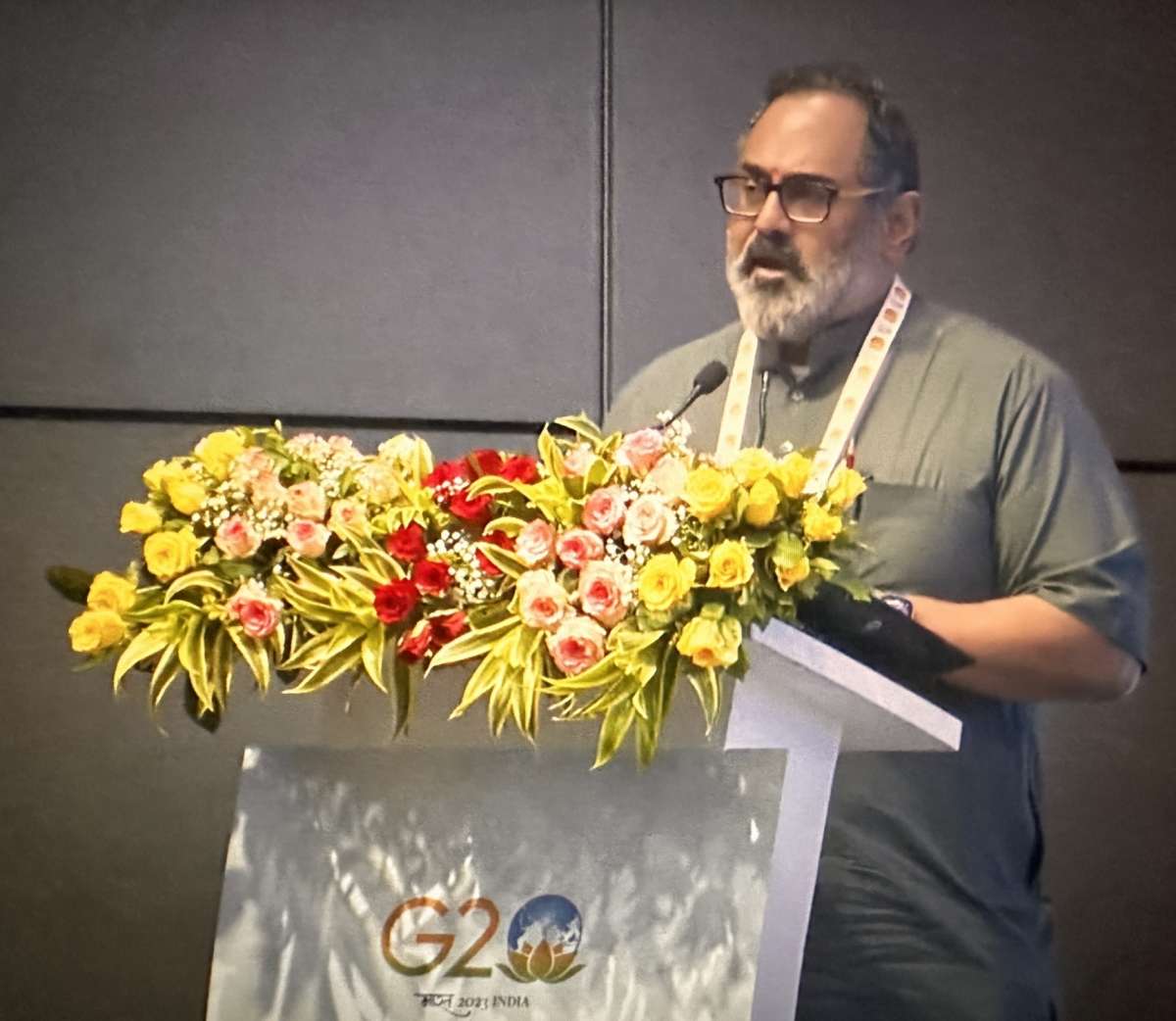Chandrasekhar emphasised that it’s important for governments to formally recognise that cybersecurity threats hamper innovation, trust in essential services and consumer confidence….reports Asian Lite News
India which has created a significant and robust innovation ecosystem, like the unified payments interface (UPI) and Aadhaar to benefit millions of its people, will help other nations build and expand their digital infrastructure, Union Minister of State for Electronics and IT, Rajeev Chandrasekhar, said on Monday.
Speaking at the Global Digital Public Infrastructure (DPI) Summit in Pune, the minister said that UPI, which is one of the world’s fastest growing fintech ecosystems, was essentially a government use case of seamlessly transferring subsidies to citizens.
“As the governments around the world implement DPIs, they will see the catalytic benefit of India’s startup and innovation ecosystem in their local economies with partnerships. They should make India a case study on DPI,” Chandrasekhar told the gathering.
On the first day of the summit, the Centre signed the memorandum of understandings (MoUs) with three countries on sharing India Stack — the successful digital solutions implemented at population scale.
At the event, the government floated the concept of ‘One Future Alliance’ — a voluntary initiative that aims to bring together all stakeholders to shape, architect and design the future of DPIs that can be used by all countries and all people.
Chandrasekhar emphasised that it’s important for governments to formally recognise that cybersecurity threats hamper innovation, trust in essential services and consumer confidence.
“Cybersecurity in the digital economy is not a domestic issue but a global issue. There is certainly a global protocol that is required and this DPI partnership, this one future alliance would also be addressing issues of partnership on shaping the future of our approach towards cybersecurity,” said the minister.
The DPI infrastructure is accelerating even further with the advent of technologies like artificial intelligence and language models.
“The move towards a global DPI framework is about addressing the fact that technology can and must be inclusive and it must empower even those who are not necessarily the developed and the advanced nations in the world,” the minister emphasised.
Making progress on the ‘G20 Digital Economy Working Group (DEWG)’, MeitY is organising the summit in Pune from June 12-14.
The summit is expected to be attended by around 300 senior delegates, including 150 foreign delegates from 46 countries.

Leave a Reply